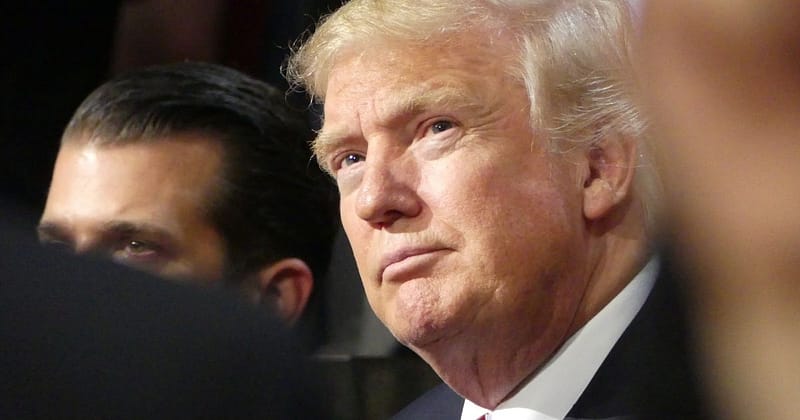Regardless of your political affiliation, you probably can find a reason to be disappointed with the president. The same could be said about each president from George Washington to Obama. That is the nature of politics. Politicians can’t please everyone, and nobody is perfect. However true, the visceral disdain that Trump invokes is similar to how the right felt about Obama. The New York Times article, “Trump’s Taxes Show Chronic Losses and Years of Income Tax Avoidance,” inflamed classist and political sentiments.
As an independent, CPA, and investment professional, the Times article provides an opportunity to discuss something that I’ve advocated for almost two decades: true tax reform. What simple changes can be enacted that will allow everyone to keep more money in their pockets while avoiding instances where some individuals and organizations clearly are not paying their fair share of the government’s operating cost?
The matter extends beyond politicians like Nixon who was castigated for paying too little taxes to businesses like Apple, Facebook, and Amazon and countless other “rich” people and organizations. They are locked in constant battle royales with the IRS and various local, state, and international governments in regard to paying an equitable amount of taxes.
In 2018, Amazon paid $0 in taxes. The Institute on Taxation and Economic Policy stated that at least 60 other large businesses including Netflix, John Deere, GM, and Salesforce.com paid zero income taxes and possibly got refunds in 2018 for taxes paid in prior years. Most Americans earn quite a bit less than these companies and pay significantly more than zero.
Constantly raising taxes isn’t a solution to the inequity if taxpayers can use loopholes to reduce or eliminate taxes. Neither is it the solution when the government’s spending is out of control. This brings me back to the article.
Although it discusses the millions the president owes and a number of other things related to his 500-plus business entities, garnering most of the attention was the assertion that he only paid a combined $1,500 ($750 each year) in federal income taxes in 2016 and 2017 from a “potential” taxable income of $81.2 million ($24.8 celebrity income + $56.4 canceled debt).
I didn’t omit any zeros. That isn’t $750,000. Yes, one of the richest and certainly most powerful men in the world is alleged to have paid less federal income taxes than many who earn minimum wage. How was that possible?
First, I don’t know if that assertion is true. There are too many inconsistencies in the article for me to believe it. I could put my CPA hat on and detail how it is possible based on the information provided in the article, but I would risk muddying the issue. What should disturb everyone interested in justice for all, AKA equality, is the fact that someone with a higher income can pay less tax than someone with a lower income. The fact that this is a reality —as many businesses and individuals illustrate—is a problem. It is too easy to get out of paying a fair share of the government’s legitimate operating cost.
In other words, I do, but don’t care whether Trump passed the “reasonable and necessary” litmus test that the IRS enshrined in the tax code and deducted more than he was entitled to by paying his daughter millions in consulting fees or $70,000 for hairdos. That is the IRS’s $100 million question. (According to the article, $100 million is what Trump could potentially owe if the IRS audit concludes that he was not entitled to the losses he claimed.)
No one should end up shouldering more than their fair share of the government’s operating cost because they weren’t privy to its many loopholes. The fact that is possible but expensive for people and organizations to shirk their tax responsibilities and pass the buck is an injustice to us all that must end.
What’s the solution? A flat gross income tax!
Everyone pays. No tax brackets. Not a net of expenses tax. That is what we currently have in a nutshell, and it isn’t working to cure injustice. A flat gross income tax is how the average taxpayer, investor, and businessperson can keep more money in their pockets and reduce the odds of others passing the buck.
The alternative minimum tax doesn’t address the concern that people aren’t treated equally under the tax code. Raising regular tax rates on the rich or lowering them for the poorest won’t guarantee that everyone pays their fair share of the government’s operating cost. Letting corrupt politicians pick winners and losers with the tax code is the type of discrimination that is antithetical to the Declaration of Independence’s claim that all men are created equally.
To keep as much of your hard-earned money as possible and to prevent people from dodging taxes, the complex 74,608-page tax code must be shredded. It should be replaced with one sentence: All individuals and organizations must pay a flat percentage of gross income without exception.
The federal tax could be one percent of gross revenue, leaving 99% for you to spend, invest, or save as pleased. This means that versus getting the claimed $750 from Trump out of his reported 2016 potential earnings of $81,200,000, the government would have collected $812,000. Versus the federal government collecting zero in taxes from Amazon’s 2018 $232,890,000,000 in revenue, the federal government would have collected $2,328,900,000 in taxes. A person who earns $100,000 would pay $1,000.
This could work. To keep and make more money, advocating for this monumental change, along with some other things I talk about in my books, is what you can do to avoid overpaying your share of the taxes. Let’s make it happen.





